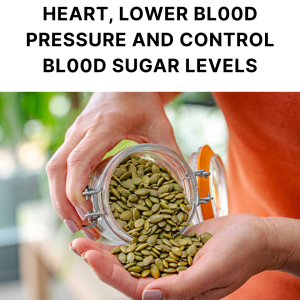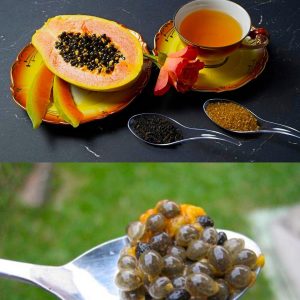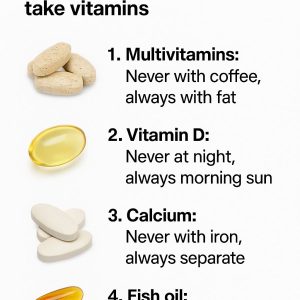
Pumpkin is a low-calorie, nutrient-packed member of the winter squash family, loaded with essential vitamins, minerals, and antioxidants. Belonging to the Cucurbitaceae family, pumpkin originates from North America and is especially popular during the fall, particularly around Halloween and Thanksgiving.
Here are nine impressive ways pumpkin supports your nutrition and overall health.
1. Highly Nutritious
Pumpkin has an impressive nutrient profile. One cup of cooked pumpkin (245 grams) contains:
- Calories: 49
- Fat: 0.2 g
- Protein: 2 g
- Carbohydrates: 12 g
- Fiber: 3 g
- Vitamin A: 78% of the Reference Daily Intake (RDI)
- Vitamin C: 13% of the RDI
- Potassium: 12% of the RDI
- Copper: 25% of the RDI
- Manganese: 9% of the RDI
- Riboflavin: 15% of the RDI
- Vitamin E: 13% of the RDI
- Iron: 8% of the RDI
It also contains small amounts of magnesium, phosphorus, zinc, folate, and several B vitamins.
2. High in Antioxidants That May Reduce the Risk of Chronic Disease

Excess free radicals in the body can cause oxidative stress, which contributes to chronic diseases such as heart conditions and certain types of cancer.
Pumpkin is rich in alpha-carotene, beta-carotene, and beta-cryptoxanthin — all powerful antioxidants that help neutralize free radicals and prevent cellular damage.
3. Packed with Vitamins That Support Immunity
Pumpkin is loaded with nutrients that strengthen the immune system. Its high beta-carotene content is converted into vitamin A, which is vital for immune defense.
Studies suggest that vitamin A helps your body fight infections more effectively, while deficiencies in this vitamin can weaken immune response.
Pumpkin also provides vitamin C, which promotes white blood cell production, enhances immune cell efficiency, and supports wound healing.
Additionally, it contains vitamin E, iron, and folate — nutrients that collectively contribute to immune health.
4. Supports Eye Health
Beta-carotene in pumpkin converts to vitamin A, an essential nutrient for eye health and a key factor in preventing night blindness.
Research has shown that higher intakes of vitamin A and beta-carotene may help lower the risk of developing cataracts. Pumpkin’s vitamins C and E also protect eye cells from oxidative damage caused by free radicals.
5. Promotes Weight Loss Through Nutrient Density and Low Calories
Pumpkin is a nutrient-dense food, meaning it provides many nutrients for very few calories.
With under 50 calories per cooked cup and 94% water content, it allows you to enjoy filling portions without consuming excess calories. Its fiber content further supports weight management by promoting satiety and reducing overall calorie intake.
Compared to other starchy foods such as rice or potatoes, pumpkin is a lighter, more nutritious option for those looking to lose or maintain weight.
6. May Help Reduce the Risk of Can:cer
Several studies have found that diets rich in carotenoids — like those found in pumpkin — are linked to a lower risk of certain cancers, including stomach and lung cancers.
Alpha-carotene and beta-carotene, in particular, are known to protect cells from DNA damage and inhibit cancer cell growth.
7. Supports Heart Health

Pumpkin is rich in potassium, vitamin C, and dietary fiber — all of which are beneficial for cardiovascular health.
Potassium helps regulate blood pressure and may reduce the risk of stroke and heart disease. Meanwhile, vitamin C acts as an antioxidant that supports blood vessel health.
Additionally, the antioxidants in pumpkin prevent the oxidation of LDL (“bad”) cholesterol, which can otherwise contribute to artery blockages.
8. Promotes Healthy Skin
Pumpkin provides a range of skin-friendly nutrients, especially carotenoids such as beta-carotene, which the body converts into vitamin A.
A single cup of cooked pumpkin provides over 75% of the recommended daily intake for vitamin A. Carotenoids like beta-carotene help protect skin cells from UV damage, acting as a natural internal sunblock.
Pumpkin’s vitamin C content also supports collagen production, which helps keep skin firm and elastic. Additional antioxidants such as lutein, zeaxanthin, and vitamin E further protect the skin from sun-induced damage and premature aging.
9. Low in Calories and Highly Versatile
Pumpkin’s mild sweetness and creamy texture make it easy to incorporate into a variety of dishes — both sweet and savory.
You can roast pumpkin, blend it into soups, mash it into purees, or use it in baked goods such as pies, muffins, and pancakes. Even the seeds are nutritious and can be eaten roasted or used to make pumpkin seed oil, which has been linked to benefits for heart and bladder health.
If preparing a whole pumpkin feels time-consuming, pre-cut or canned pumpkin is an excellent alternative. Just make sure the label lists 100% pure pumpkin without added sugars or artificial ingredients.




